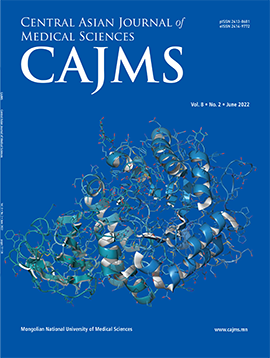Effects of Hepaclin-4 on Hepatocellular Carcinoma (Hep G2)
DOI:
https://doi.org/10.24079/cajms.2018.03.006Keywords:
Medicinal Plants, Biological Products, Hepatocellular Cancer, Cell LineAbstract
Objective: Liver cancer is the fifth most frequent cancer worldwide and is usually diagnosed at an advanced stage. Natural products play an important role in anticancer drug therapy because they are effective in treating specific characteristics of cancer while also effective at reducing side effects. However, the cytotoxicity and anti-proliferative effects of Scutellaria baicalensis Georgi, Saussurea amara L, Chiazospermum erectum (L) Bernh, Carthamus tinctorius L., remain unclear. Our research aims to investigate the anti-cancer properties of Hepaclin-4 (Hep-4) extracts from the above mentioned plants. Methods: To evaluate the in vitro cytotoxicity of Hep-4, an ethanol extract of Hep-4 (500, 250, 125, 100, 50, and 10 μg/mL)L, doxorubicin, and 5-fluorouracil (5-FU) were assessed against the Hep G2 hepatocarcinoma cell line by monitoring proliferation using the MTT assay method. Results: The results demonstrated growth inhibition of cells in both dose-and time-dependent manners. Hep-4 inhibited Hep G2 transformation in 45% and the comparative group, 5-FU, effects on 40% of it. Conclusion: Our findings suggest that Hep-4 extracts have the potential to be a potent cytotoxic agent against Hep G2 cells, as it has commendable anti-proliferative effects against hepatocarcinoma cell lines and can be considered an effective adjuvant therapeutic agent.
Downloads
242
Downloads
Published
How to Cite
Issue
Section
License
Copyright (c) 2018 Mongolian National University of Medical Sciences

This work is licensed under a Creative Commons Attribution-NonCommercial 4.0 International License.




